Although we took the decision to go back to Switzerland, we still have time to enjoy Vietnam and travel. From that moment starts a month and a half of rest, good time, and also a little boredom in Danang. We have been through so much heat in recent months that we are happy to be able to stay cool during the hot hours, from 10am to 4pm. But that implies we must find something to do inside in these hours, which is not always the case … the Vietnamese have no problem waking up at 4 or 5 in the morning to run on the beach, drink coffee with friends, etc. But for us, the morning awakenings are more difficult, and when we are finally ready to go out, the sun beats so much that we prefer to wait for 4pm.
On May 13, however, we are going to live the sun for good, especially Mehdi. It’s the day of the Iron Man 70.3. Jana and Sara came to join us for the weekend to support the champion. 6:20 am, start of the swim. The sea is rough and there are big waves. Mehdi is still happy because he swims the 1,9km in 46mn. His fan club is there to cheer him up when he comes out of the water.
Then it is the bike challenge, the sun is already here but it is not too hot. We follow Mehdi on scooters in various places. At the end of the 90km of cycling, the sun is already high in the sky and the heat is overwhelming. But remains the challenge that requires the most energy, the 21.1km race.
We see runners walking, overwhelmed and stunned by the sun; there is no more shade to protect themselves and they arrive exhausted at the refueling booths to be sprinkled with fresh water. We struggle to find our athlete and when finally we see him, he is in poor condition, but only a few km away from the end. Despite a cloth and a hat on his head, he has the impression that the sun is seeping under his clothes to boil his blood. “Come on, come on!” shout his fan club on their scooters, “it’s almost done, you’ll get there” !!
We wait for him at the finish line and are relieved when he finally takes the last step of this event! Rest then well deserved, and Belgian beer evening on the terrace (the beers here are the worst we have ever tasted).
Apart from this event, we have a very quiet life and experience the nonchalance of the south. Learn to feel good with yourself by doing nothing. No profitability, no stress, just be there without expectations. Not always easy and we sometimes reach our limits and go around in circles. We build relationships with the Vietnamese family with whom we live, especially with the grandmother who does not speak a word of English. She speaks to us in Vietnamese, and that suits us very well, we answer her in French. The bond is there so it works; we have in any case the impression to understand her most of the time! She is impressed how Mehdi is kind to Alice: it is true that in Vietnam a man would not do the dishes or the cooking, which Mehdi does not hesitate to do.
Mehdi gives his basketball training two to three times a week. It is not always easy to be understood and listened to by a group of children who are sometimes very numerous, but he is happy to see that this sport is developing here and that, despite several inconsistencies in learning, everyone is happy and motivated, which is the essential!
The more we drive in Vietnam, the more we realize with sadness that the Vietnamese drive very badly and cause serious accidents by a total lack of awareness of others on the road. We see about ten accidents, one of which is serious. This does not reassure us. When a scooter engages on the road, the driver does not look if the lane is clear; it is therefore up to those behind to honk, slow down or avoid it. It works most of the time, but when there are big crossovers, or the traffic is very dense, an accident happens quickly. The great quality they all have in their driving is that they stay calm all the time. It’s not like in our countries where people insult themselves in their car and are tense at the slightest deviation from the rule. Here, as there are no rules, everything is respected and people do not get upset, drive slowly and take on themselves. We promise ourself to keep this attitude as long as possible once back in Europe, while applying the traffic rules that make more sense for us at once.
We visit the Steiner Kindergarten in Danang. Alice having been educated in a Steiner school, it is always interesting to meet people in various cultures who also follow this pedagogy. Especially since we are usually welcomed warmly, which makes us feel a bit at home. This welcoming is not lacking this time either, and we are very impressed, knowing now a little better Vietnamese culture, how these women were able to implement a kindergarten so beautiful and neat, providing a safe and nice place to 70 children here in Danang. When they started two years ago, there were apparently only 6 children. Today, there are 100 children on the waiting list; proof that the Vietnamese realize that the school system offered to their children does not allow them to flourish and to have a sense of success in their life. Exit exams are apparently so hard and there is such pressure on young people that many of them have committed group suicides because of these exams.
We are gradually getting acquainted with our adopted city for this sedentary part of the trip. We particularly like the Dragon Bridge, one of the 4 main bridges that crosses the very wide Hàn River.
As soon as the sun allows us, we go for a walk on the beach where we find the Vietnamese and their children playing in the sand and bathing. Alice decided to learn how to swim the crawl to make next year an iron man 70.3 relay. Not so simple in the sea with the waves and the water that enters her nose as soon as she resumes her breathing, but so nice to be able to do a little sport without dripping sweat!
We do small things here and there. We go by scooter to Hue, which is a hellish expedition because we have to go through the cloud pass, a beautiful mountain between Danang and Hue, and that it takes us 3 hours to reach our destination, the ears buzzing and the buttocks paralyzed but the view is worth it!
In Hue, we take the opportunity to meet with Jana and Sara, and go swimming in the pool of the French school where Ho Chi Minh studied as a young man. The next day, on the return and the advice of our friends, we stop in a natural park and enjoy a kind of “basins” developed by the Vietnamese in the fresh water of the river. What a delight to feel cold!
We are cordially invited by our host family to join them for the grandfather’s death day. A tradition here is to meet up with family on the day of the death of a family member, share a good meal, make offerings, and toast together! The whole house is busy preparing 1001 traditional dishes. The whole family is invited as well as the close neighbors; it is mostly men who come and the beer cans go down quickly! The atmosphere is very friendly and joyful and the meal ends late in the afternoon. We are happy to be able to ask questions and communicate with Hien, our owner who is here in Danang these days and who speaks English.
We go to see a puppet show on the water. Puppets are known in the traditions of many countries in the world, but making them evolve in the water is unique to Vietnam. We were a little suspicious because the show was in Hoi An and we were afraid of falling on a tourist trap. But not at all; we loved the simple poetry, the usual aesthetics of which the Vietnamese have the secret and the lightness of the show!
Discoveries, surprises, anecdotes…:
- The “street” in Vietnam and South East Asia is a concept very different from the street in our countries. In the street here, you can eat, sleep, and even relieve yourself! This is how we often see parents sending their children to pee in front of their homes on the street, while they have toilets in their homes. Most of the time, people stay in front of their house, busy preparing dried fish and other dishes, or meet together to eat on their table and mini plastic chairs. The street, a second house here
- In the evening, we often heard a kind of repetitive little song launched by a speaker on a scooter. We wondered what it could be until we saw the scooter in question: arranged in the back, a large pot placed on a stove (yes yes a fire stove on a scooter!); in the pot, white breads steamed and stuffed. These characters crisscross the cities with their loudspeakers to sell their breads to passers-by. We have rarely seen people buy them but we liked to hear from now on this melody in the evening in our street.
- We were surprised when we arrived in Vietnam to find that homestay is very complicated. For some reasons that we still didn’t elude but apparently connected to communism and corruption, it is forbidden to host someone without informing the local police. So, when you invite someone to your home, you have to ask for his passport and bring it to the police. If you do not do it, you can have problems if suddenly the police decide to disembark in the middle of the night to check who is sleeping in this or that house. That’s what happened to our owner Hien who had his passport confiscated when he was sleeping at a friend’s house one day.
- The grandmother of the house where we live has 7 children. A very common number apparently for the Vietnamese before the 90s. The government then put in place a restriction to 2 children per family. If people had more, they were denied certain benefits or promotions in the workplace. Some families have hidden their children. Today, this restriction is apparently no longer relevant, but families do not make as many children as before.
- What we have enjoyed in Vietnam but even in other Southeast Asian countries are fresh fruit juices prepared and served in the street. The cheapest juice, the most common and still very nice is the sugar cane. First remove the bark of the cane with a planer, then cut the cane which is then passed through a press several times, accompanied by a lime. Rejuvenating and beautiful during a big heat, do not forget to ask for “không muối” (without salt) if you do not want to end up with a sweet and salty juice, a concept that the Vietnamese appreciate but which is not to our taste!
-
The waste management here remains a great mystery and at the same time a fascination for us: everything is thrown in the street, sometimes in bags, sometimes as it is. On the other hand, everything is picked up and even more or less sorted. There is a large amount of rag pickers who pick up bins, bottles, cartons, aluminum … they go on their bike which is shielded by waste, or with a big bucket. They are very little equipped and work at night as well as during the day. The waste management is done and the cities are clean, but the problem we see is that this act of casually throwing things on the street (the public garbage almost does not exist) continues in nature: people throw in the sea, the mountain, the same way they would throw in the street. It seems they have no awareness at all of their act and consequences.

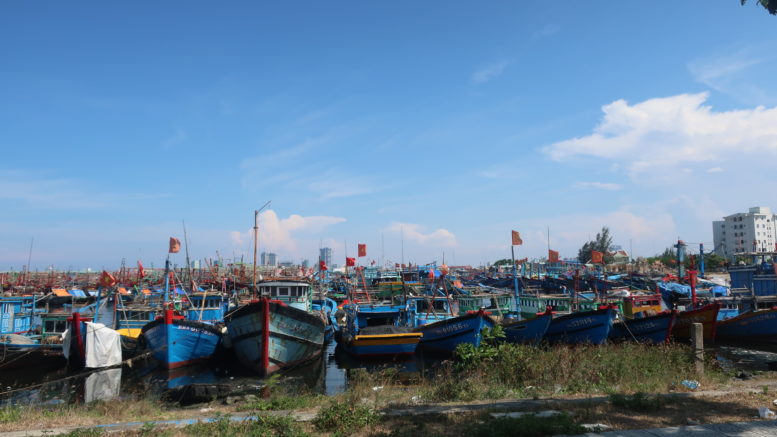
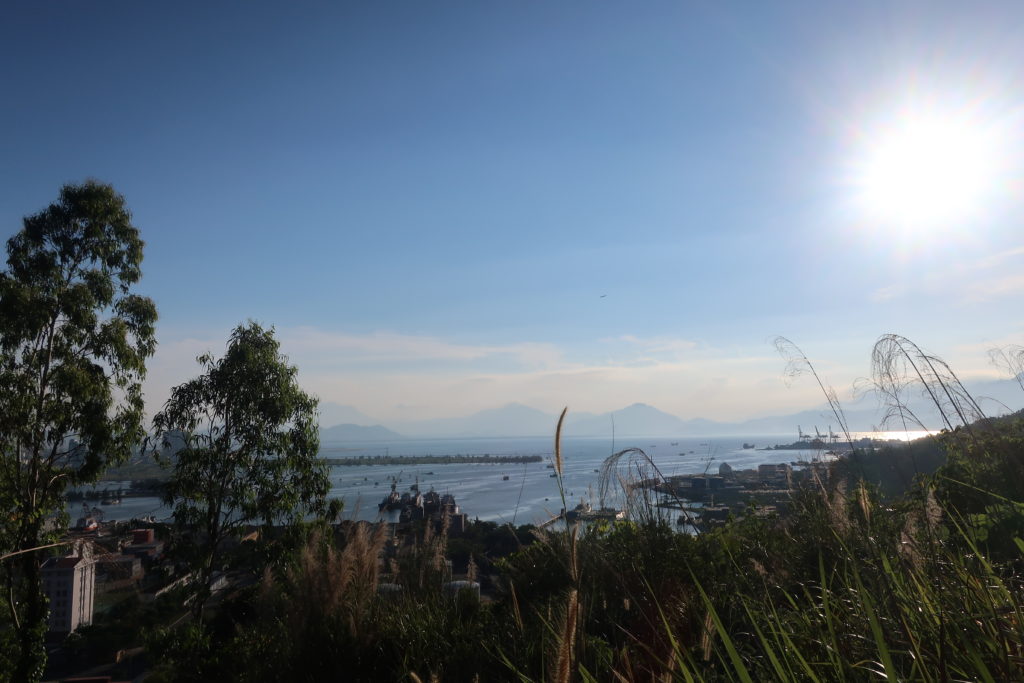
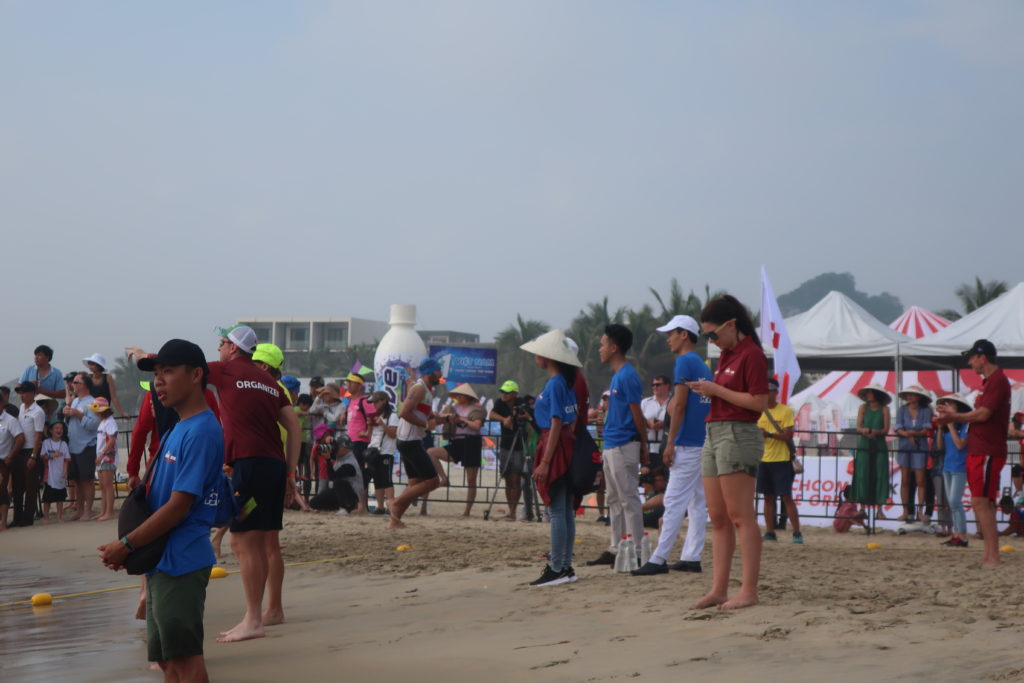
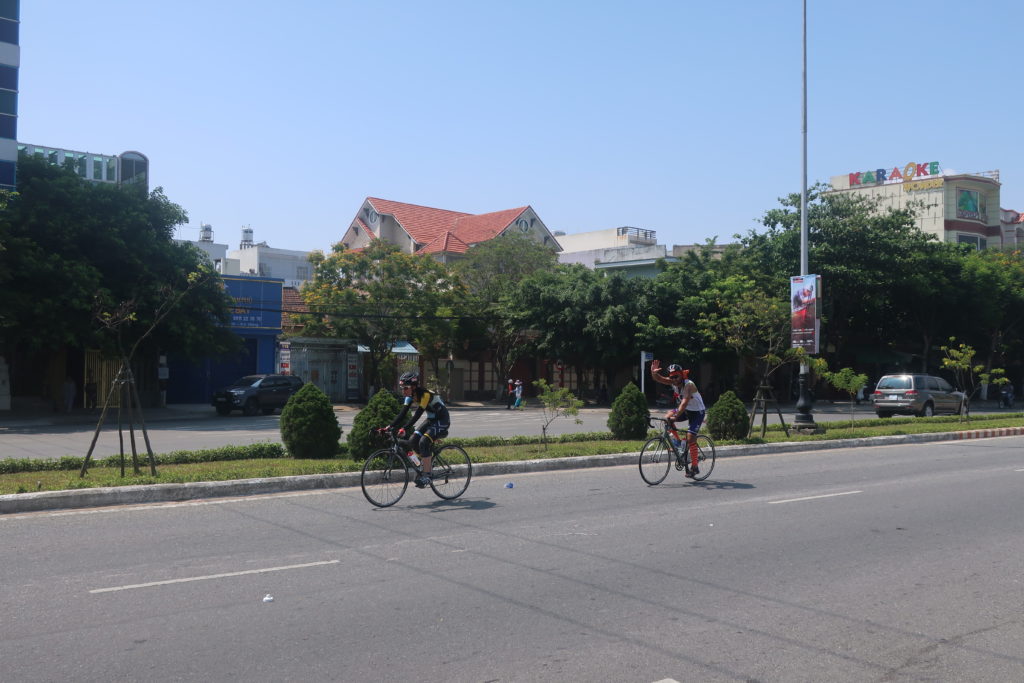
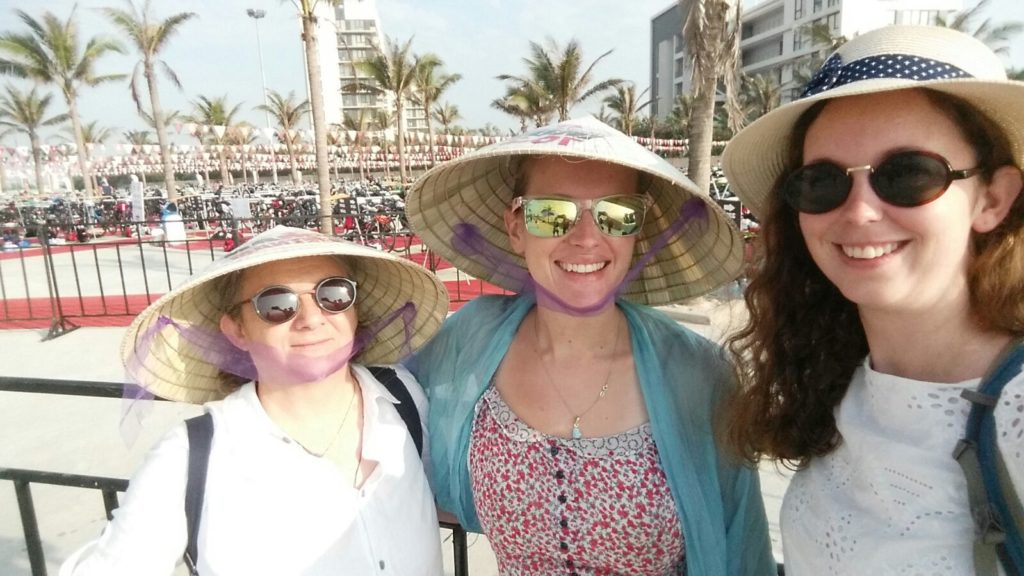
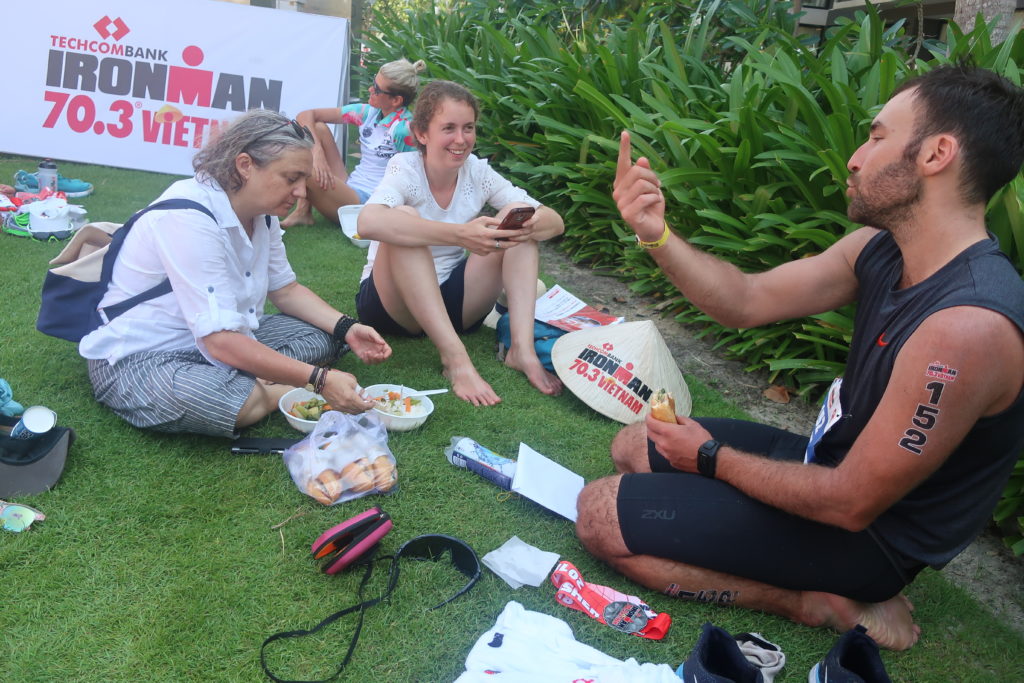
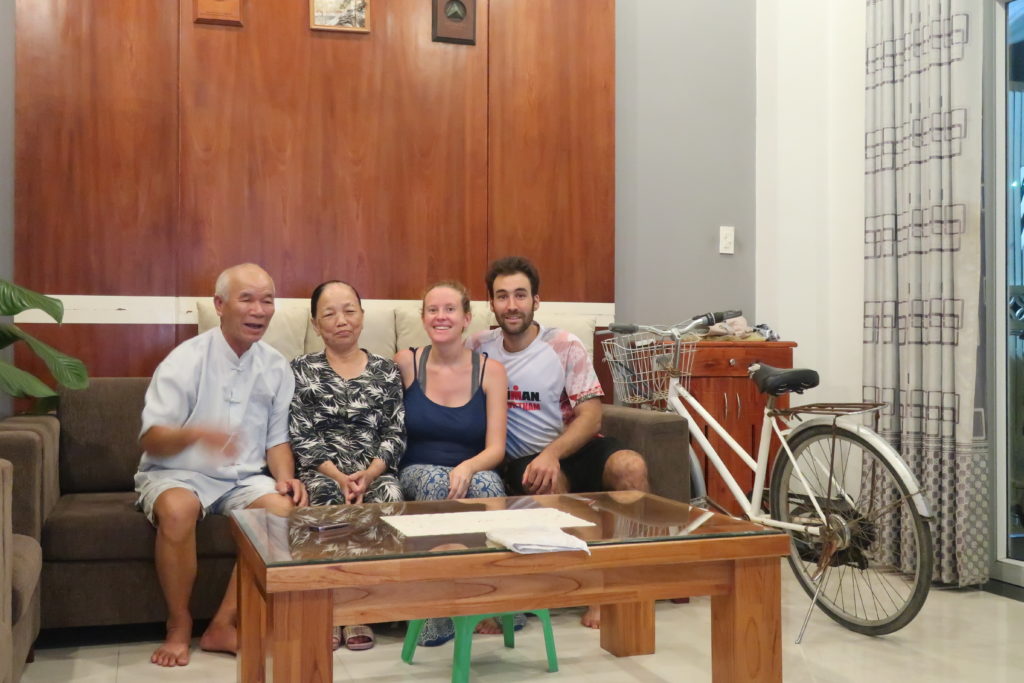
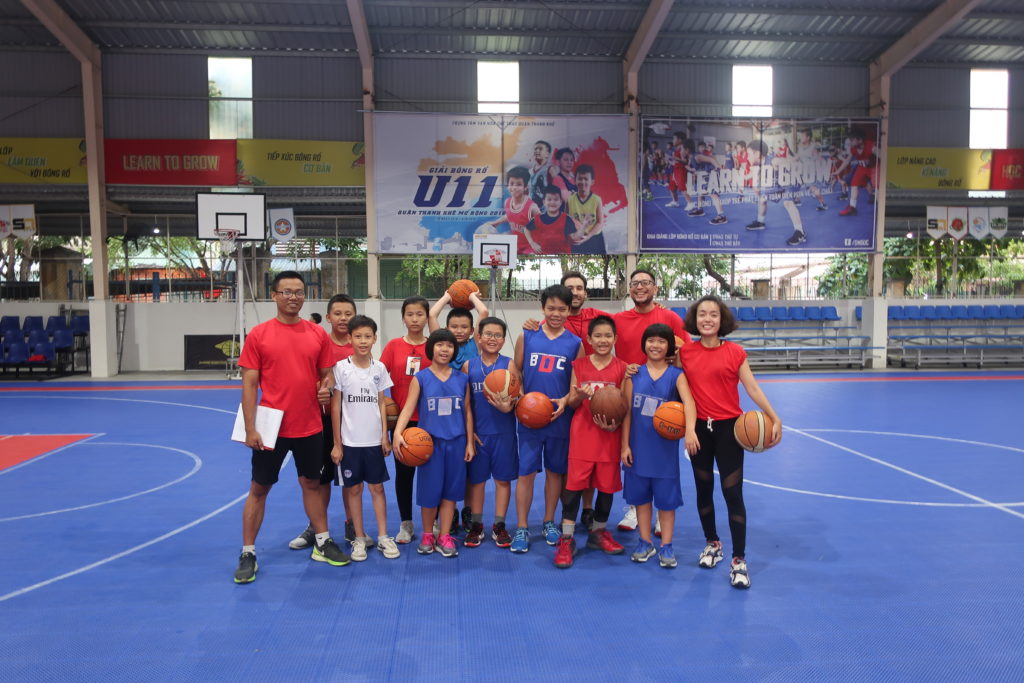
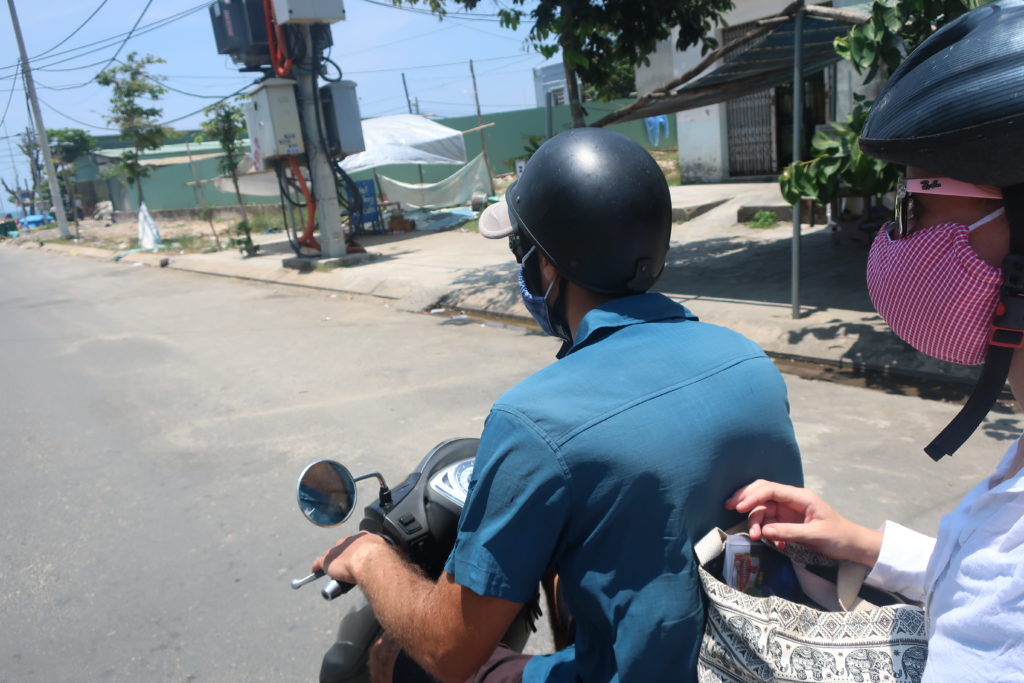
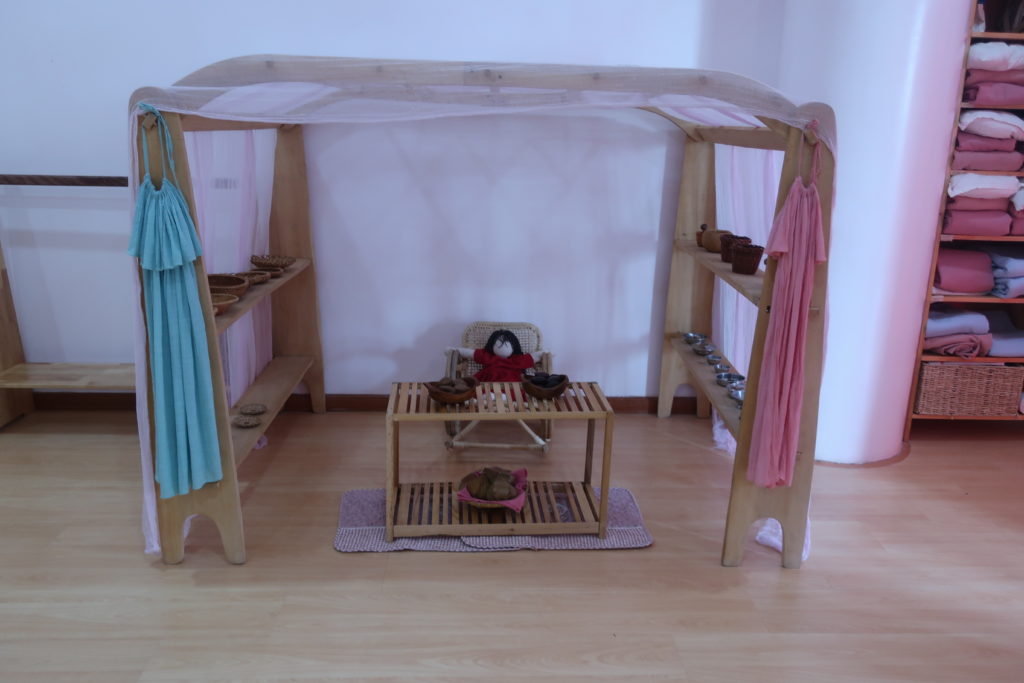
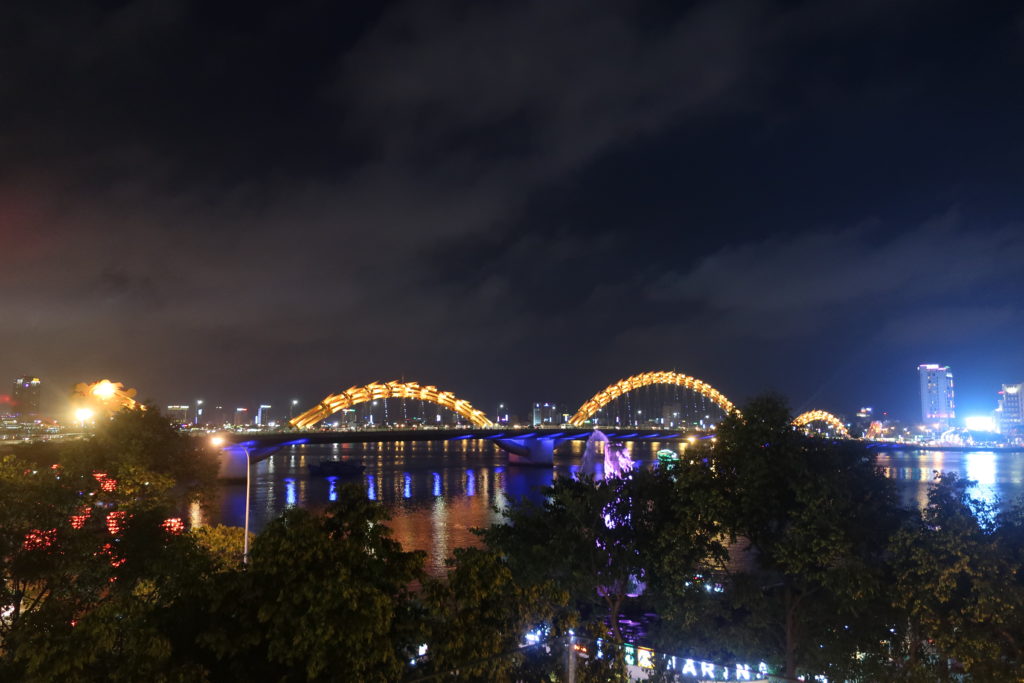
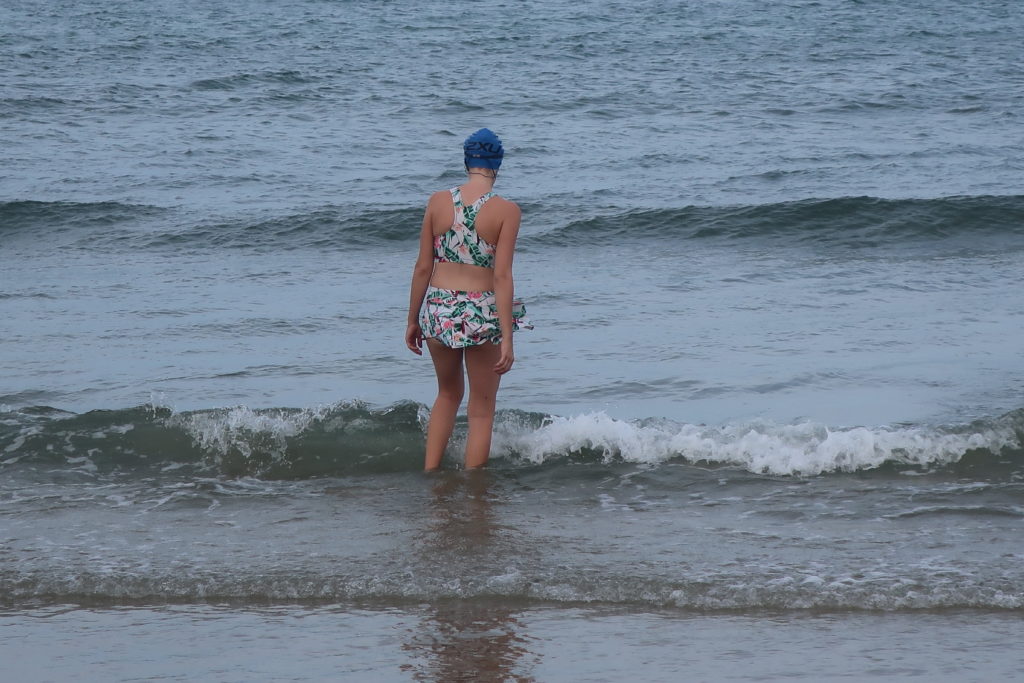
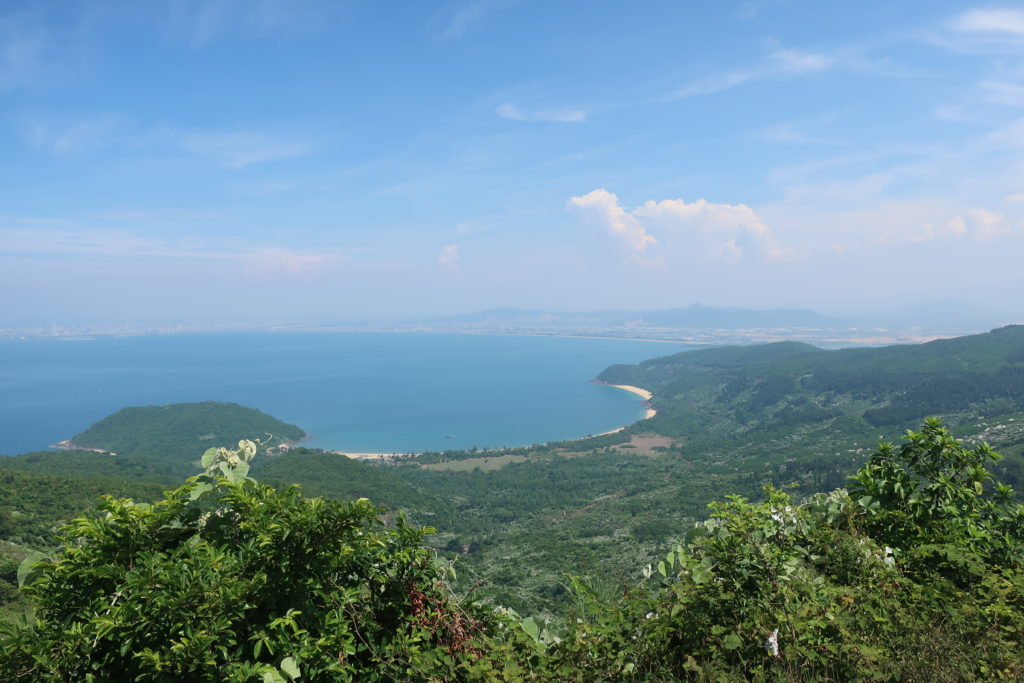
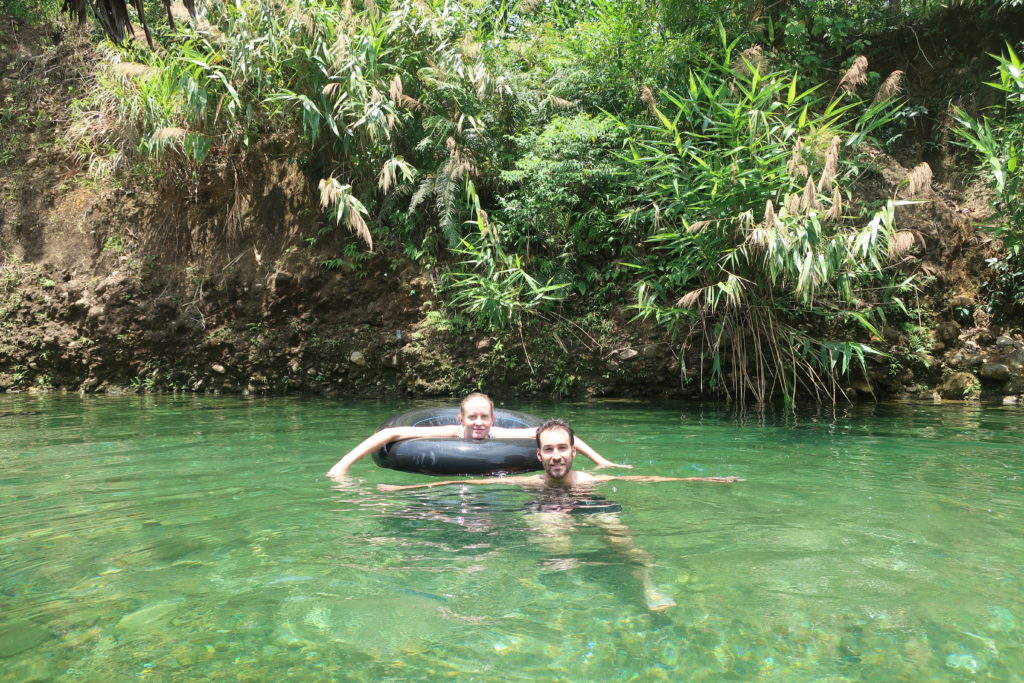
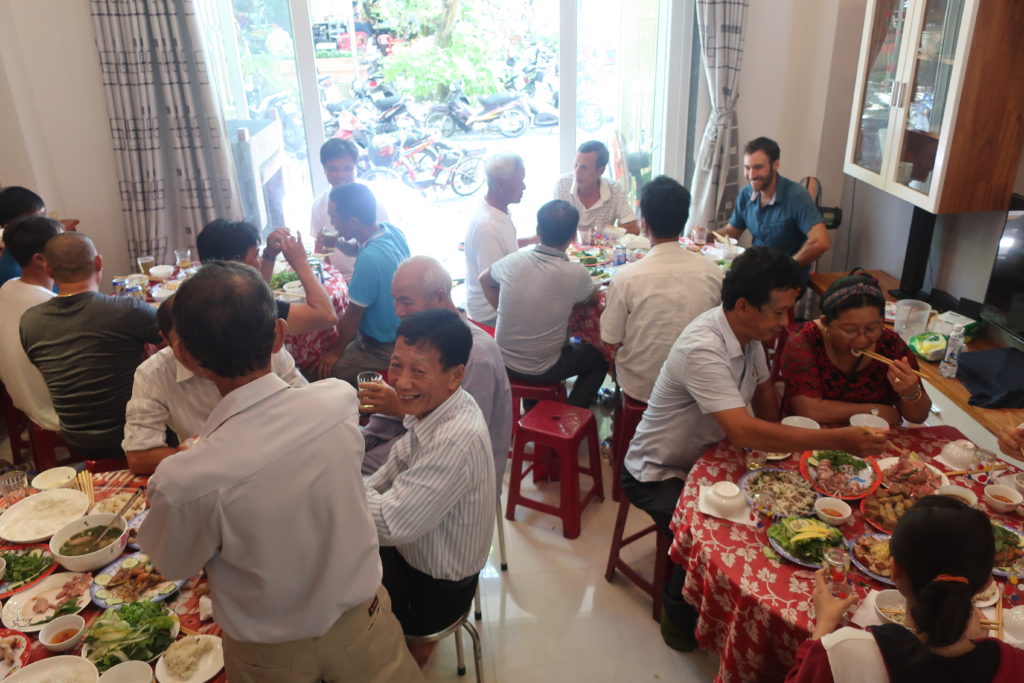
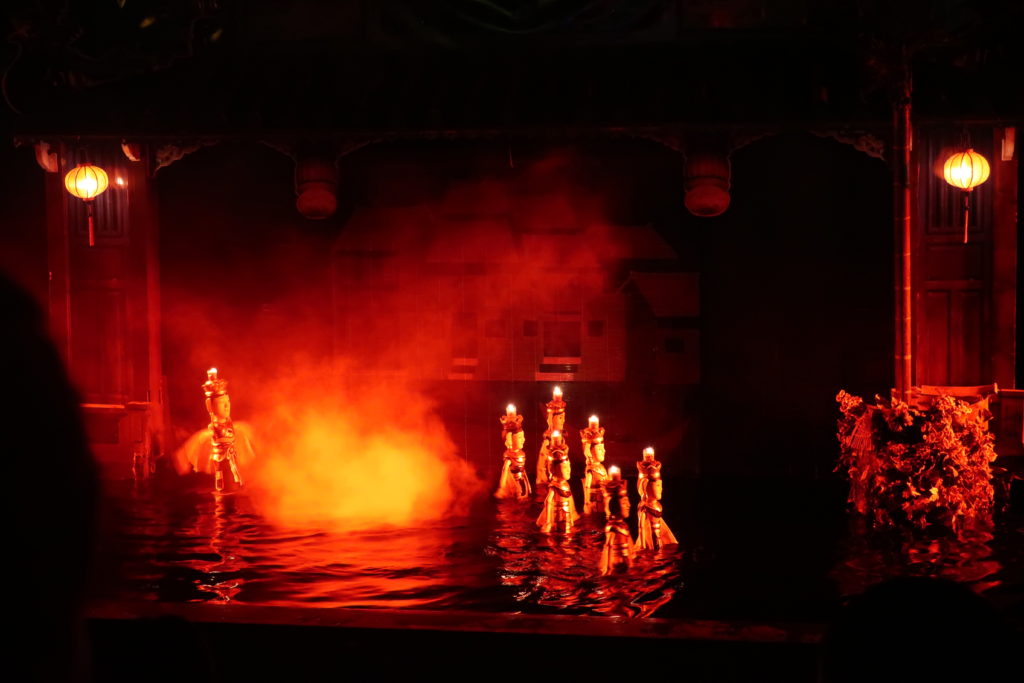
trop bien votre récit, encore une fois super!!!!! Bonjour Mehdi / Alice.
Merci pour toutes ces nouvelles / ces paysages ect. ect..
Je continue de vivre ce voyage à travers vous.. Super cool… Vous avez super bonnes mines . Grosses chaleurs là bas… Ici, ça va, ces jours il fait grand soleil mais la bise est très présente.Elle chasse les nuages, du coup, nous avons un ciel super bleu…
J ai vraiment l’impression que vous vous etez super bien adaptés où que vous alliez Trop bien et quelle expérience pour la vie…
On est en plein dans le mondial FOOT.. Sympa et bonne ambiance de partout dans la rue/ les cafés ….
Voilà, je vous laisse et vous souhaite le meilleur pour ces derniers temps .Profitez un max… Jusqu à quand cette belle aventure ?
bis. Marie- José
Hello Marie-José!
Merci pour tous ces petits messages, ça fait plaisir d’avoir des nouvelles de la Suisse et de se sentir suivi!
Nous partons tout bientôt pour un mois au Japon, et retour en Suisse début août! Nous serons donc disponibles avec plaisir pour se voir!
Pourrais-tu nous envoyer en message privé sur le blog (dans l’onglet contact) ton adresse postale?
Des bisous,
Alice & Mehdi